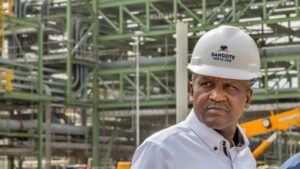Manufacturers appeal for more support to boost rubber production
Natural Rubber Producers, Processors and Manufacturers Association of Nigeria (NARPPMAN) on Monday appealed to states and the Federal Government for more support to boost cultivation and processing of rubber.
The Chairman of NARPPMAN, Benue Chapter, Mr Abichi Henry, made the call in Calabar while speaking with journalists.
He said that the rubber subsector needed more awareness campaign, government incentives, modern technologies and vast lands to enable it bolster the economy.
The chairman said it was important for states and the Federal Government to support rubber production by helping farmers to access bank loans.
According to him, rubber production will benefit many generations.
He said that rubber production was more sustainable than crude oil.
He said although rubber farming was new to Benue, it had prospects following increasing awareness by NARPPMAN.
“Rubber producers are faced with challenges such as lack of government partnership in the provision of land and inputs and inability to access loans/grants from financial institutions.
“Rubber farmers need more training workshops to keep them updated on modern methods of farming and agribusiness in general.
“However, I commend the Federal Government for establishing the Rubber Research Institute of Nigeria which supplies rubber nurseries that have enabled Benue people to key into the Rubber value chain,” he said.
Similarly, Alhaji Yakubu Maji, Chairman NARPPMAN, Kaduna State Chapter, said that soil in Southern Kaduna had been found to be good enough to grow rubber trees.
He said that the association would like states and Federal Government to provide it with more lands to establish a Rubber Village.
“Latex from rubber trees in Kaduna flows faster than those in Benin where they get the nurseries but since they do not have modern machines to process it into sheets, they sell out at give away prices to off-takers.
“If we have machines to process the latex ourselves, we would take the processed rubber to Kano and other industrial cities and sell at higher prices,” Maji said.




